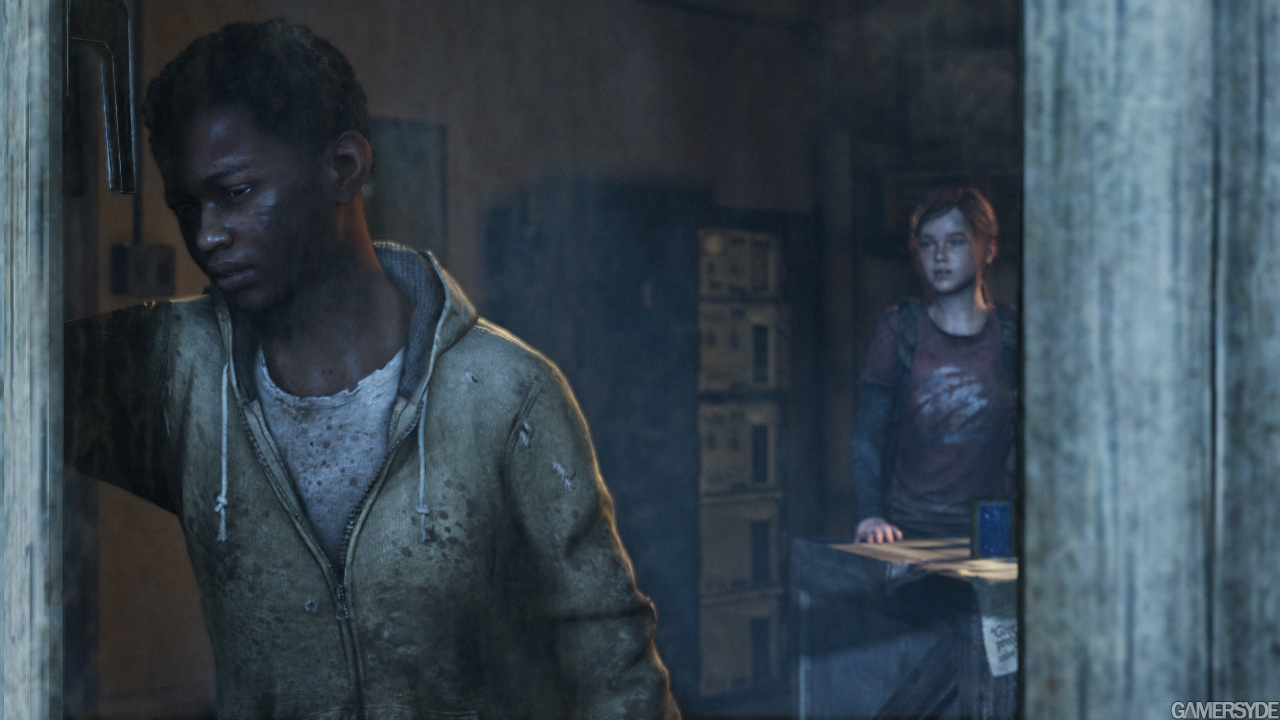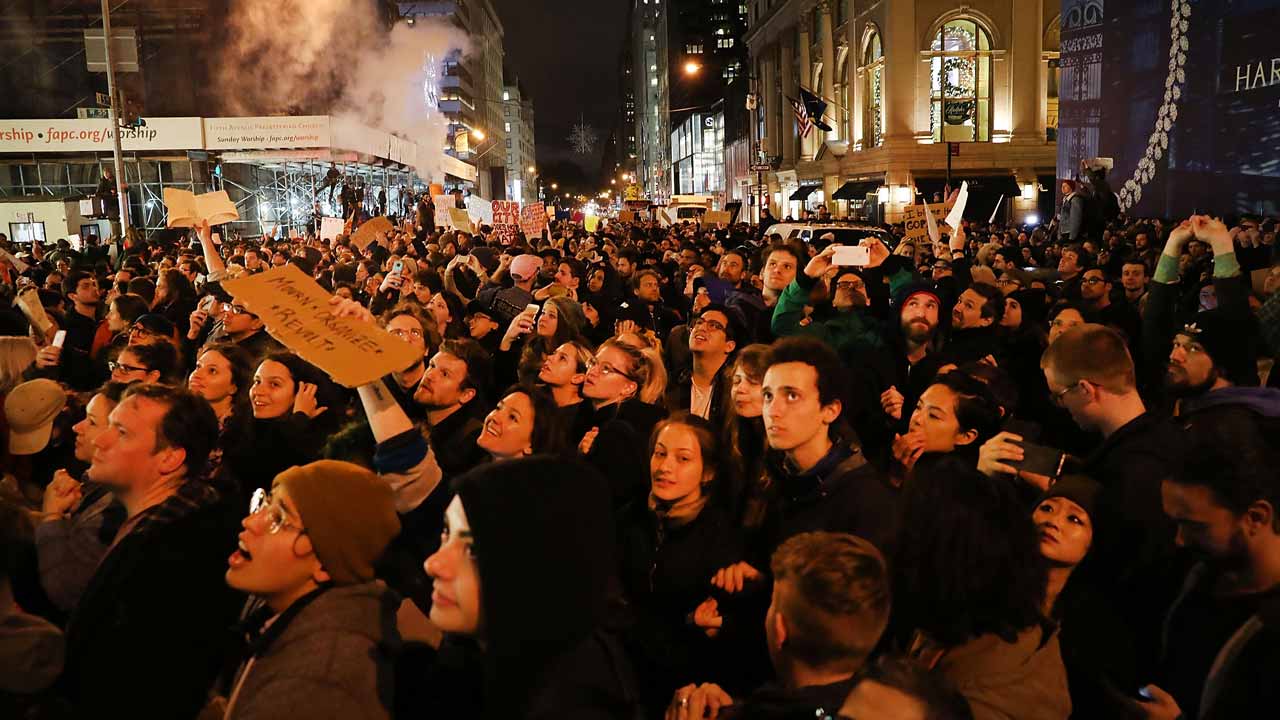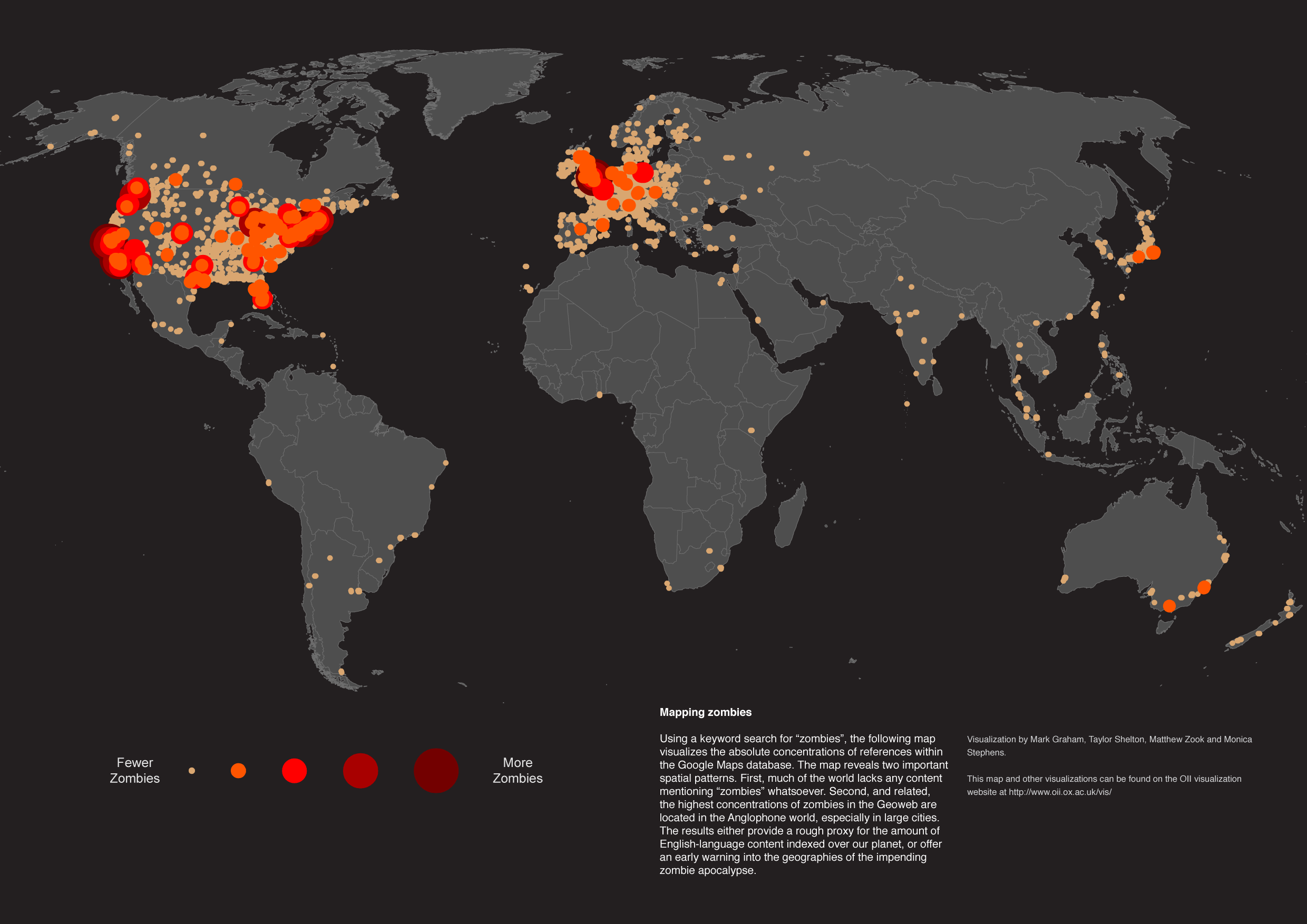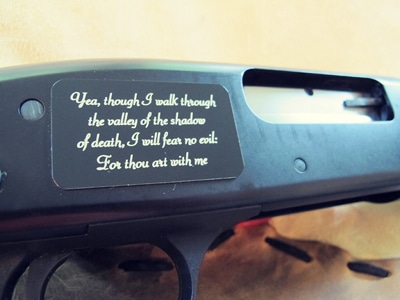Just how much can you learn about being a Christian in the post-Trump secular age of identity politics from playing a video game about the zombie apocalypse? What does survival even look like for Christians? Who knows. But I had fun writing about it.

I just finished playing through the Zombie survival thriller The Last Of Us. Like many other high quality story driven gaming experiences, it really hit me in the feels. Perhaps especially this scene between Ellie and Sam; discussing the soul, or the humanity, of the infected (you can watch the scene here). Note: There’ll be some spoilers in blockquotes throughout this; but they aren’t super essential to this piece.
Sam: How come you’re never scared?
Ellie: Who says I’m never scared?
Sam: What are you scared of?
Ellie: Scorpions are pretty creepy… Being by myself… I’m scared of ending up alone. What about you?
Sam: Those things out there? What if the people are still inside? What if they’re trapped in there without any control of their body? I’m scared of that happening to me.
Ellie: First of all, we’re a team now, we’re going to help each other out, and second, they might still look like people, but that person is not in there anymore.
Sam: Henry says they’ve moved on, that they’re with their families, like in heaven, do you think that’s true?
Ellie: I go back and forth, I mean, I’d like to believe it.
Sam: But you don’t?
Ellie: I guess not.
But it also got me thinking. How would I go about surviving in a world where all my neighbours, the people I live with in my city, seemed determined not just to want to understand me, but wanted to infect me with a deadly, soul stealing, virus in order to make me just like them. And why does modern life often feel like that? Not just when it comes to my faith in Jesus and what life in modern Australia seems to want me to do with that; but with any view I hold that someone else disagrees with? You want a scene that looks like something out of a zombie survival movie where a bunch of people are operating with some sort of narrow-focused hive-minded propensity for violence and the destruction of the brains of another…
Well…

An anti-Trump protest
Sadly I suspect this would’ve looked almost exactly the same if Hilary had won and Trump’s supporters had hit the streets.
Zombies, Trump, Identity Politics, and civilised self
Playing The Last Of Us, thinking about Christianity in a post-Christian world, and watching the fallout to Trump’s victory got me thinking about the way we’re increasingly not individuals in public and social life, but tribes, and about how sometimes this tribalism plays out in what people are calling ‘identity politics’… which has been the subject of some of the more fascinating analysis of both Trump’s victory and the protests in response. The Stanford Encyclopedia of Philosophy defines Identity Politics as:
“The laden phrase “identity politics” has come to signify a wide range of political activity and theorising founded in the shared experiences of injustice of members of certain social groups. Rather than organising solely around belief systems, programmatic manifestos, or party affiliation, identity political formations typically aim to secure the political freedom of a specific constituency marginalised within its larger context. Members of that constituency assert or reclaim ways of understanding their distinctiveness that challenge dominant oppressive characterisations, with the goal of greater self-determination.”
This is made all the more interesting by this piece reacting to Trump’s victory and the fallout amongst those who practice identity politics in the Stanford Review.
Stanford has come to embrace a particularly narrow definition of identity politics – one that almost exclusively focuses on the struggles faced by racial minorities and that refuses to acknowledge the plight of any group that does not fit in this reductionist narrative.
It’s fair to say identity politics has largely been a plaything of the political left, until Trump.
In The Last Of Us there’s both the meta-tribes of ‘survivor’ and ‘infected’ and the splintered identities within the survivors who look for survival by belonging to different factions or adopting different strategies. These sub-groups don’t like each other much; they pose just as much danger to one another as the infected; and as a result, undermine the human enterprise. It’s the times that people join forces across tribes that provide some of the most poignant moments in the game. It’s a moment like this that brings Ellie and Sam (and their guardians) together; but the conflict across these sub-groups; these tribes; these identities involves people treating other people as something less than human. As you play the game you’re every bit as likely to sink a bullet or an arrow into another person as you are into a zombie; which requires, ultimately, thinking of anyone who opposes your vision for human flourishing as though they are something less than truly human. It’s an identity politics thing; you operate in this wasteland where survival is everything as though your neighbour is your enemy if they don’t belong to your tribe, and those enemies are in competition with you for resources and a threat to your group’s survival because they’ll either steal from you, or lead the infected to you and undermine your whole social enterprise.
Your identity and your understanding of how identity works in the life of others will, and should, inevitably shape the way you approach and understand politics. I approach politics in a way almost totally formed by my Christian convictions and the sense of self and what human flourishing looks like, that comes from this identity. Where identity politics and tribalism get a little dangerous (and combative) happens along the same fissure line in our view of the other that turns The Last Of Us’ Joel and Ellie into human killers, not just zombie killers; it feels like when we’re trying to survive in the cultural wasteland of modern, secular, life every other vision of what the flourishing life looks like has the potential to eat away at the core of my identity; thus the core of myself and my tribe; thus it is a threat that we must guard ourselves against; tribally. I suspect this is, in part, an explanation for the Benedict Option (which I’ll get to below).
As Joel and Ellie travel through the post-infection wilderness they come across several failed utopias, including one where a small breach in the tribal boundaries — in the wall — was enough for the infection to slip by and destroy the community; other communities, particularly the tribe Sam and his brother Henry belonged to, were destroyed by hostile humans who wanted their stuff. Survival in the world of The Last Of Us seems to require keeping your guard up; and it’s this practice that drives the narrative, and the tension, between Joel and Ellie. Joel loses his daughter in the first cut scene of the game, early in the outbreak of the virus; years later he meets Ellie and takes responsibility for her well-being; his nature, hardened by surviving in the post-apocalyptic wilderness, is to remain emotionally buffered; to avoid attachment to Ellie because his own survival depends on it; well, at least that’s what he thinks. There’s a scene where Joel and Ellie are discussing a toy robot she gave to Sam. It does contain major spoilers so maybe skip the quotes.
Ellie: I forgot to leave that stupid robot on his grave. What should I do with it?
Joel: Ellie…
Ellie: What? I want to talk about it.
Joel: No.
Ellie: Why not?
Joel: How many times do we need to go over this? Things happen… and we move on.
Ellie: It’s just…
To say more would be to spoil the game even more; and you should play it; but Joel’s view is not uncommon in the game, or in the real world. In fact; it’s modern, even if we tend to live tribally around shared identity rather than as individuals. We have this sense that letting down our guard enough to understand an other person, or an identity counter to ours, is a threat to our survival, because it undermines our ability to keep the walls up and may lead to some sort of nasty infection where our identity is ripped apart. The modern, secular, human is by nature, at least according to philosopher Charles Taylor, a ‘buffered self,’ and by this he means a few things.
“This term, as I’ve been using it, has in fact a complex meaning… To be a buffered subject, to have closed the porous boundary between inside (thought) and outside (nature, the physical) is partly a matter of living in a disenchanted world. It comes about through… the replacement of a cosmos of spirits and forces by a mechanistic universe, the fading of higher times… but these changes were furthered, and in turn intensified by subjective changes, shifts in identity, like the rise of disengaged reason, and the transformations wrought by disciplined self-remaking, including the narrowing and intensifying of intimacy and Elias’ “civilising process.”” — Charles Taylor, A Secular Age.
The world of The Last Of Us, like ours, is thoroughly disenchanted. Ellie is haunted by the possibility of an afterlife, but the virus causing the infection is very real, and very scientific (and the attempts to fight it are really playing out in a lab, and via the shotgun). Where in our secular age, at least as Taylor understands it, the ‘buffered’ self is a self cut off from the divine, or from a sense of enchantment, in the post-zombie secular age, the self is also buffered from other people; especially those outside the tribe… the introduction of this horrific and community-destroying infection has undone the ‘civilising process.’ The zombie apocalypse in The Last Of Us is fundamentally uncivilising; all the hallmarks of our civilisation fall apart. Train stations are abandoned, health care is a thing of the past — you’re left bandaging your wounds with salvaged alcohol and torn off strips of fabric, cars have all fallen into disrepair, and people behave like animals, even to the point of cannibalism. This ‘civilising process’ Taylor cites is a reference to Norbert Elias’ book The Civilising Process (which according to Wikipedia describes a basic evolution in human behaviour over time from ‘uncivilised’ to civilised); that has all come undone simply because an unexpected plague hits, and hits hard. It might not take as much as we think to turn us into savages. The scenes in the world of The Last Of Us aren’t so different from the scenes we see around mass protests where the trains no longer run on time, health systems fall apart to some extent, and people start looting and pillaging… There’s also a risk that if we see the zombie apocalypse as a metaphor for rise of Trump, or the rise of ‘identity politics’ or even the rise of secularism where the brainless masses walk the streets wanting to devour people not like them, and it’s a fight for survival, we’ll adopt strategies — like tribalism — that’ll bring about the undoing of civilisation.
The Last Of Us is a sort of warning shot in the days and weeks post Trump as we figure out the role of identity politics and tribalism together… The sort of tribalism that assumes the zombie apocalypse has hit, that everyone outside the tribe is basically the walking dead, and so turns identity politics into a wasteland survival game is deadly to us all. It’s deadly to civilisation, and deadly to the self. There’s a risk that identity politics, both in theory and as practiced, dehumanises the ‘other’ and because it diminishes the humanity of the other, it also comes at a cost to our own humanity. But this risk runs two ways — there’s also a risk that if we don’t listen to those minority voices championing the identity politics movement, that this will be to our own detriment if we’re operating in a position of relative privilege, or operating seeking the safety of our own tribe. When we attempt to silence, or simply dismiss the concerns of those voices our tribe naturally desires to exclude — those who offer an alternative understanding of, or pattern for, humanity — we’re essentially dehumanising them, seeing them as something akin to zombies, or like you see those pesky other humans in The Last Of Us, as a threat standing in the way of our colony’s surviving and thriving.
If there’s anything I learned from reflecting on The Last Of Us it’s that dehumanising the other has a profound impact on our own humanity. I shot lots of non-infected people simply to advance my own cause; survival. I could do that, morally speaking, so long as they were simply other bits of meat standing between me and survival, but Joel and Ellie find a cannibal tribe rightly repugnant, recognising the risk that their approach to other humans taken to an extreme dehumanises everyone; even if, as the game’s protaganists, we didn’t go quite so far, we end up as monsters who take just as many lives as the infected. As I thought about the body count in my quest for survival I considered that I (or Joel/Ellie) would’ve probably been far better to see some sort of dignity and humanity still underneath the skin of the infected, such that the humanity of the person from outside our tribe with a different utopian vision was not in question. There is some sense in which the human villains you stare down the barrel at in The Last Of Us are worse than the zombies; they have all their faculties in place, but are still driven by baser instincts; those pushing for survival at the expense of others. They’re worse because they choose it; and in order to fight back, we choose it too; and so we are all diminished.
This is the cost of identity politics as it plays out now; which is to say identity politics that is conceived adversarially as tribe against tribe. At worst this sort of identity politics involves a vicious cycle of interpersonal destruction; via the dehumanising of the other, and the assertion of the supremacy of my identity over yours, or, like in even the most utopian post-virus view of human identity in The Last Of Us, it requires a walled-in alienation from the rest of humanity (and the infected).
The real shame here is, of course, that some sort of identity politics is vital to survival in a secular, pluralistic, democracy, and in this sort of context, the key to real survival doesn’t lie in wiping out all competing views of identity, but cultivating the type of world where different identities and different visions of human flourishing can truly co-operate.
This means listening to people who own an identity other than your own (ie, for me, non-anglo people); or perhaps whose identity both overlaps and is differentiated from your own (so for me, for example, an anglo woman, or a Christian woman, or a non-anglo Christian), is vital to the human project. By which I mean it’s vital to true politics and to real survival (that isn’t simply predicated on wiping out the other tribes). Listening like this; and really hearing; might mean laying down some of your rights, or privilege, or capacity to wield power, for the sake of these other groups. Nothing illustrates the potentially positive role a type of identity politics, built on listening to the other, has to play in the post-Trump world if we want to avoid de-civilisation like reading this lament about his election. Hear this post. Read it. Consider it. Here’s why identity politics matter, so long as we keep them from being de-civilising and adversarial, because we so often ignore the identity (and issues) of those outside our own tribe, and there’s always a human cost for that, both for those we ignore, and potentially for ourselves in the act of ignoring, or simply not hearing, them.
Whatever your reasons, a vote for Trump required a rationalization.
What he said about “the blacks” is terrible, but…
What he said on mic about sexually assaulting women is awful, but…
How he mocked several people with disabilities isn’t okay, but…
His statement that immigrants are rapists and criminals was out of line, but…
I could keep going. I think you get the idea, though. In order to vote for Trump, something mattered more to you than his mistreatment or discrimination of certain groups. Whatever followed the “but…” is why you voted for him. Maybe it had to do with the economy or the Supreme Court or his anti-establishment vibe or [fill in the blank]. I trust that you had your reasons. Some policy aspect of his was compelling (or of hers was so awful to you that you felt like you had to vote for the person with the best chance of stopping Hillary).
But here’s the deal: Your policy stance followed the “but…” Our personhood preceded it. — Shannon Dingle, I Want To Help You Understand My Lament
It’s weird that a zombie game got me here. I get that…
Zombies, Survival, and the Benedict Option
But let’s talk about how sometimes it feels like being a Christian in the secular age is like being surrounded by zombies who want to eat your brains; and perhaps other religious groups who see you as a threat to their survival. Because this is a mistake it feels like we’re making when assessing the new status quo, and the Christian’s place in it. Just as it’s a mistake for the identity politics driven protesters to take to the streets in protest while burning effigies and like it was a mistake for Trump voters (particularly white voters) to buy into his dehumanising rhetoric about the other without listening. We don’t, as the church, want to model repeating that mistake in our interactions with the world do we? And so contribute to de-civilisation? We’re not a tribe of sole survivors trying to live in a post-apocalyptic wilderness, we’re certainly an apocalyptic, or eschatological, community living in the light of the end of days as we see it in the resurrection of Jesus and showing what a utopian future might look like, but I’m not sure that’s only meant to happen in our little buffered enclaves. It’s meant to be infectious; if anything we’re like the zombies, the infected, the ‘walking living’…
I’m sure just about every identity group who do the identity politics thing can play through The Last Of Us or watch a zombie movie and identify with the survivors… I think thinking this way is deeply problematic, and here is my point, I think at times we think of the church as an island of zombie survivors, a community-as-bunker, that’ll keep us safe if we guard the boundaries to keep us from infection and ride out the waves. And here’s my concern about the popular Benedict Option, even though I’m possibly misrepresenting it, as it seems everyone does, according to founder Rod Dreher.
People who say that I’m talking about everybody running to their bunkers hidden in the mountains need to stop it. It’s not true. — Rod Dreher, Everybody Row Or We’re Going Over The Falls
I don’t think he’s talking about bunkering down in the hills, and there’s lots he says about the sort of thick community he’s after that I think is great, sign me up (though I just call what he’s talking about ‘church’ and think we should be doing it already), but I do think he is talking about a movement that is primarily a defensive response to a sense that the world outside us is full of infected ‘secularists’ who want to destroy our brains and feed on our children. Here’s something Dreher actually said about the Benedict Option.
“There is no question that the Ben Op calls for a much greater sense of withdrawal than the church has today. The idea is not to create a “utopian enclave,” as if that kind of thing could exist, but rather to live within stronger boundaries between the church and the world, for the sake of better Christian formation, both of individuals and local communities. Most of us will continue to have a “faithful presence within” the structures of the world outside the church. The Ben Op intends to shore up the “faithful” part, because the church has failed miserably to do so. The current moment is an “apocalypse” in the strict sense of an “unveiling”: a revelation of the nakedness and powerlessness of the church before the modern world. This is simple reality.” — Rod Dreher, The Benedict Option and Faithful Presence Within
I do think despite his protestation about being misunderstood by all sorts of very smart people (and he’s writing a book that everyone should read obviously), that the Benedict Option will create a more buffered community (and these words suggest that with its ‘stronger boundaries’, rather than a community that is porous (and being porous means probable movement in and out from both directions. There’s a certain amount of theological truth to the fear that there are monsters crouching at the door waiting to turn us from Jesus, obviously; and these ‘monsters’ don’t always look like zombies, it’s much more likely that identity politics and listening sympathetically to the voices and desires of different minorities and the majority view on, say, sexuality, will pull people from Christian community… and Christians do believe that the key to being truly alive is Jesus, and anyone who doesn’t follow him is basically a member of The Walking Dead… but that doesn’t mean we should be building walls and buffering ourselves from the world at large. In part, because a buffered community is a community that doesn’t listen as well as it should to voices and perspectives from outside the community which may contain necessary criticisms for a community to hear in order to survive. But also, because if the church is going to succeed in any age we need to be porous rather than buffered, not just open to the presence of ‘the divine’ but open to the other, so that people can easily come in; we can’t simply be a community within the wider community, a ‘tribe’, or an ‘identity’ where we shore up the faith of believers by defining ourselves against unbelievers, but a community that grows believers and makes new ones. We’re made to be dynamic, to be on the move, to bring a cure to the infected, not to be static while hoping that infected people will simply fall through the gaps of our defences so that we might isolate them and cure them while they’re cut off from the disease. We can’t approach survival in the world as Christians the way Joel and Ellie face it in The Last Of Us.
The Benedict Option (even with the caveat that I might be misunderstanding it) seems to operate on the assumption that those outside the walls are zombies to be kept out, and that defence is the best response from the church to the changing world — it assumes we need to educate our kids in our own institutions, we’ll probably have to get out of the public service and the legal system, etc and we should do this rather than maintaining (and risking) a presence in these institutions calmly listening to others and offering a cure for their virus, even if doing so comes back to bite us.
It seems designed to mitigate against the risk of infection, and as a result, it creates a community that is less porous than it should be; The Last Of Us (and just about every zombie text) provides pretty strong warnings for minority groups wanting to politic on the basis of their identity that it’s important to keep the walls up. And the Benedict Option, though its proponents would claim otherwise, seems to be a defensive, risk-averse (looking internally, rather than considering the ‘risk’ of how society outside the church will treat us) approach to identity politics; predicated on carving out a Christian identity against and apart from the world. Christian community must be risk-taking, with a particular sort of risk in mind.
“Whoever wants to be my disciple must deny themselves and take up their cross and follow me. For whoever wants to save their life will lose it, but whoever loses their life for me will find it. What good will it be for someone to gain the whole world, yet forfeit their soul? Or what can anyone give in exchange for their soul? — Matthew 16:24-26
The risk of Christian community is that by heading out into a world full of sick people we might get infected by the world (which didn’t worry Jesus so much, and maybe our aim should be to be like him), but it is riskier still to do nothing. The Benedict Option feels too much to me like the guy in the parable of the talents who took everything his master gave him and buried it so he wouldn’t lose anything; where the righteous person took risks with the master’s gifts in order to grow his wealth. That parable contains God’s investment strategy, not for money, but for the church and how we invest ourselves in the world. Porous boundaries are a necessary risk if we want our community to survive and thrive, and if we want to bring real life and hope and cure to the existentially sick beyond our boundaries… I’d also argue it’s actually this task taking up the call to go into the world to make disciples — not simply be in the world trying to make disciples while keeping the infected at bay — that best shores up the faith of Christians. The best form of defence is ‘attack’ (with the obvious caveats that attack for us, following in the footsteps of Jesus, might actually look a lot like losing)…
In The Last Of Us, Joel, the main character, goes on a journey (led by Ellie) where it becomes clear that staying cut off from emotional attachment to anyone (because they might be infected or die at any time) isn’t a great way to live; that being buffered gets in the way of being human. This ultimately leads him to a place of reconciliation with others he’d spurned and scorned; to seeking a greater understanding of life in the world. It’s a beautiful story. He realises survival isn’t just about staying alive, hunkered down away from risk, but about being alive in relationship with others. This is what offers him the hope of a return to civility; in a community that is starting to recapture even some of the technology lost as a result of the arrival of the infection. Our civilisation, in the rise of tribalism and identity politics, isn’t threatened by zombies who can’t be cured, but by humans who are beaten and battered into buffering themselves against everyone not like them; it’d be a mistake for the church to respond to this by forming our own tribe and forging our own identity apart from and against all other comers instead of modelling what it looks like to break down barriers, understand the identity politics of others ,and work towards a civilisation that gives space for all comers, so that we might have a voice to speak of the ultimate cure and the ultimate kingdom, the one that answers the longing of Sam, Ellie and Joel… Even if it bites us.









